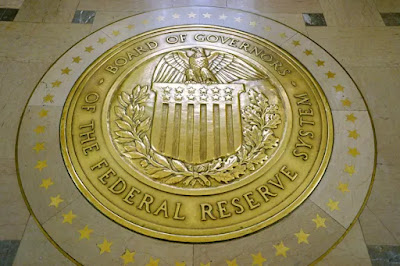SINGAPORE – The U.S. dollar barely moved in Asian trades on Monday, even as sterling blipped higher and the yen dipped, as a Japanese holiday and a bunch of upcoming central bank meetings sucked the air out of markets.
The Bank of Japan’s policy meeting on Friday is the highlight of the week in Asia, after Governor Kazuo Ueda stoked speculation of an imminent move away from ultra-loose policy.
That’s made the BOJ somewhat of a standout in a week packed with central bank meetings, with the U.S. Federal Reserve seen doing a hawkish pause on Wednesday and Bank of England possibly raising rates one last time on Thursday.
The yen was flat versus the greenback between 147.63 and 147.88 per dollar, with markets in Japan closed for a national holiday. In the days since Ueda’s remarks about a early move from negative rates, it has dropped 1.3 percent and taken losses for 2023 to more than 11 percent.
Carol Kong, economist and currency strategist at Commonwealth Bank of Australia, said she expects the yen to be volatile leading up to the policy meeting and that investors may have potentially misinterpreted Ueda’s comments.
The recent spell of weakness in Japanese wages and possibility prices too could soften and push the BOJ farther from its inflation goal, the case for a BOJ policy tightening is still not very strong, Kong said.
“In terms of the direction of travel, dollar/yen can definitely track higher…particularly if Governor Ueda sounds dovish and dashes hopes of policy tightening at the upcoming meeting,” she said.
Wei-Liang Chang, FX and credit strategist at DBS Bank, said market participants expect the BOJ could give guidance on when its negative interest rate policy will be reversed and the path of rate hikes beyond that.
“Anticipation of new BOJ rate guidance could support the yen into the meeting date, with the FOMC meeting also contributing to volatility this week,” Chang said.
The dollar index was a tad lower at 105.23, with the euro up 0.12 percent at $1.0705. Sterling was last trading at $1.2395, up 0.1 percent on the day.
Stark divergences in economic growth and in yields will keep the dollar propped up mostly, investors expect, particularly against the euro. Sterling has slid nearly 6 percent against the dollar since mid-July, while the euro has dropped more than 5 percent as the UK labor market and economy and the euro zone economy slowed.
The European Central Bank raised interest rates to 4% last week but said this hike could be its last.
With Japan shut, cash Treasuries were untraded on Monday.
U.S. Treasury yields have been edging higher, with the two-year above the 5 percent threshold and up 25 bps this month, spurred by rising government spending and the anticipation of the Fed keeping rates high for longer faces to rein in inflation that’s still above target. Last week’s U.S. retail sales data played a part, reducing the odds of recession even further.
Futures are pricing in almost no chance that the Fed raises interest rates at the end of its two-day meeting next Wednesday.
The Bank of England is likely to hike interest rates for the 15th time and take benchmark borrowing costs to 5.5 percent, and markets are already looking for a pause in a massive tightening cycle that has policymakers worried about the cooling economy.
UK inflation figures for August are also due on Wednesday, just ahead of the meeting.
Meanwhile, oil prices are adding a layer of complication to central banks’ growth-inflation dilemmas. Oil is also on track for its biggest quarterly increase since Russia’s invasion of Ukraine in the first quarter of 2022.
Brent crude futures are at 10-month highs above $93 a barrel, after having posted a third weekly gain on supply tightness spearheaded by Saudi Arabian production cuts and some optimism around Chinese demand.
-reuters




















